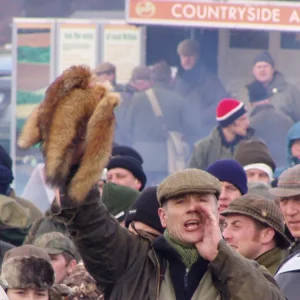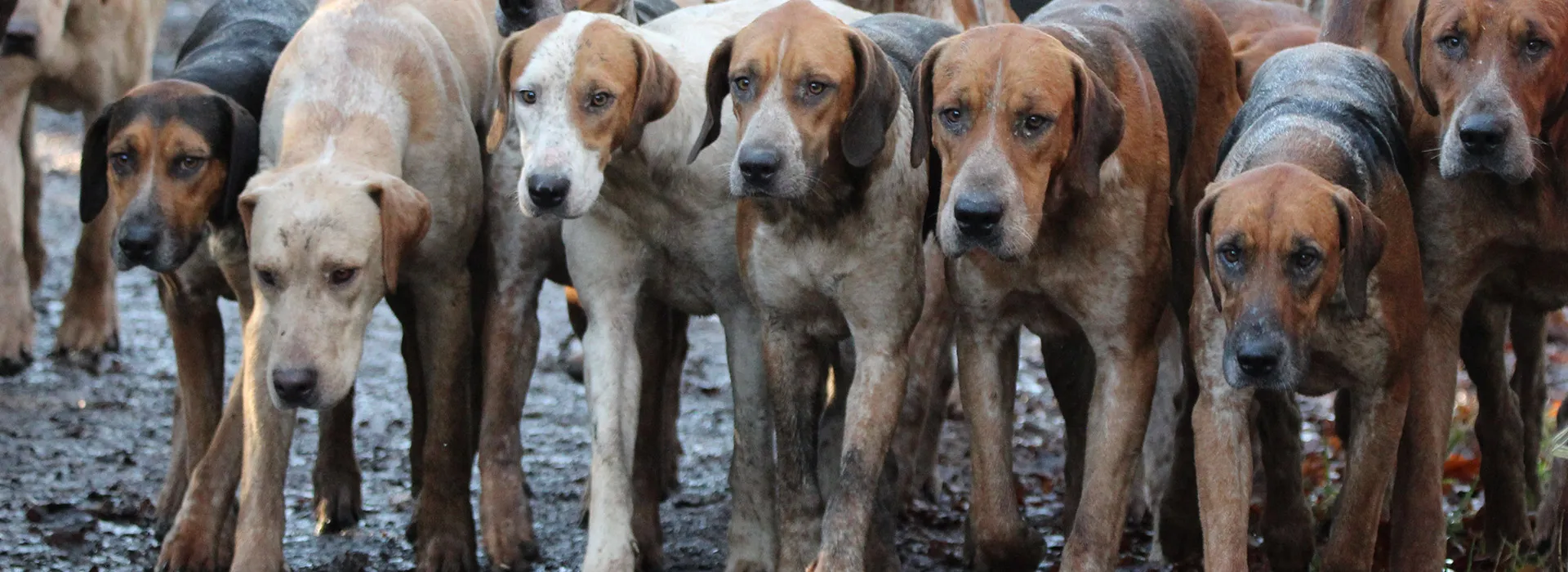While badgers are targeted and attacked by illegal gangs, the dogs used in badger baiting can end up badly injured as well.
Most injuries on dogs are found on the face and lower jaw as the dog is attacking a badger which is down a sett at a lower angle.
“Badger baiting at any time of the year is bad enough, but at this time there may be young in the sett,” said badger expert Ian Hutchinson.
“Mum will be ferocious in protecting them and the dogs get ripped to shreds.
“I’ve seen dogs with lower jaws missing completely having been in fights with badgers.”
Specially dug chutes have been uncovered by USPCA and PSNI officers.
In these underground chutes, a tunnel is dug and a dog is put in at one end and a captured badger in at the other.
While there is no way of knowing exactly how many people are involved in badger baiting, there is a suspicion that in the recent past some events at chutes could attract large numbers of people, some coming from as far away as Scotland or the north of England to test their dogs.
One source told me that on more than one occasion he had seen dogs that had left the tunnel without attacking the badger killed on the spot by their owners.
At least one was simply hit with a shovel over the head. The dogs that kill the badgers regularly emerge with horrific injuries.
Stephen Philpott from the USPCA said no gang would continue to feed a dog that is of no use.
“When those dogs get to the end of a season and are so severely damaged that they won’t be able to badger bait the next season they are killed,” he said.
And those injuries pose more problems for those trying to combat an activity which they believe is as barbaric as it is illegal.
Dogs that kill badgers are a valuable currency among those involved and when injured, they are treated and healed to be traded, bred or used in further contests.
There is suspicion is that some vets have hired out their services.
“Qualified veterinary surgeons know fine well what has happened to those animals,” said Mr Philpott.
“They should be lifting the phone immediately and alerting the PSNI or ourselves of what they’ve just seen.
“But if, as we suspect, they are doing it because they’ve been well paid to do it, then shame on them as well.”
The Royal College of Veterinary Surgeons said that in was “not in a position to comment on the beliefs of a third party” but added “there is an expectation that all vets abide by the law”.
The North of Ireland Veterinary Association said it was “sickened and appalled” by badger baiting.
“Veterinary surgeons work under a professional code of conduct to uphold animal health and welfare and care deeply about the animals under their care,” said Bert Allison, vet and president of the association.
“The claim by USPCA that veterinary surgeons are deliberately failing to report incidents is therefore shocking.
“However, if there is evidence that this has happened the USPCA must provide all relevant information to the Royal College of Veterinary Surgeons which is the statutory regulator of the veterinary profession.”
Injured dogs have been found right across the country.
The USPCA, along with the police, has been working to rescue as many dogs as possible.
However, housing them is another challenge.
The charity is worried that on at least two occasions since Christmas there have been attempts to break into its kennels to retrieve dogs that themselves could become evidence in court cases.
Despite that the USPCA has said it will continue to seek the prosecution and disruption of those involved in badger baiting right across Northern Ireland.



